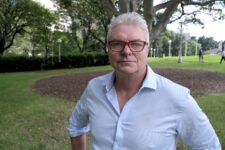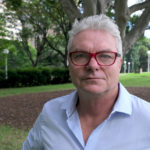Drop the Charges Against David McBride, Recommends Senate Press Freedoms Inquiry

The final recommendation made by the Senate inquiry report into freedom of the press was that the Commonwealth Director of Public Prosecutions “urgently reconsider, on strong public interest grounds” whether to continue the prosecution of former military lawyer David McBride.
The press freedoms inquiry was sparked by two June 2019 AFP press raids, one of which saw the execution of a search warrant at the Sydney offices of the ABC over the publication of the 2017 report The Afghan Files, which detailed Australian special forces operations in Afghanistan.
The information in the ABC’s report was sourced from classified Australian Defence Force documents leaked by McBride, who’d already exhausted every internal avenue to raise concerns about how our nation’s special forces were operating in the Central Asian nation.
For his trouble in having put himself on the line to expose what was transpiring overseas in the name of our country, McBride was charged in 2018 with multiple national security offences, and he’s now facing up to 50 years in prison.
Exposing the facade
One of the most hypocritical aspects to the McBride prosecution over blowing the lid on what he’s described as an “Instagram war” – as “everything was done for appearance” – is that the Coalition had already commissioned the Brereton inquiry to investigate the same misconduct in Afghanistan.
Having been privy to claims that Australian special forces troops were allegedly committing war crimes, the ADF asked NSW Supreme Court Justice Paul Brereton to undertake the official inquiry in March 2016, over a year prior to the release of the Afghan Files in July 2017.
McBride was charged while the investigation was still underway. And when the Brereton report was released last November, it simply confirmed what the lawyer had already helped bring to public attention.
The Brereton report recommended the AFP investigate 36 matters for possible criminal prosecution.
In the public interest
The press freedoms inquiry made seventeen recommendations in total. Numbers seven and eight involve reforms that would require the prosecution to establish unauthorised disclosure wasn’t in the public interest, rather than the onus be upon journalist defendants to establish that it was.
In an interview last April, David McBride explained that prior to his exposure to what was transpiring in Afghanistan, he’d been a “true believer” in what the Australian government was doing in overseas theatres of war must be the “right thing”.
Indeed, after attending Oxford University, McBride went to the UK’s Royal Military Academy Sandhurst, where he became a British Army major.
The former ADF lawyer made two tours of Afghanistan, in 2011 and 2013. He’s made clear in the past that what he wanted to expose through blowing the whistle was the poor way that military management was administering the war, which was leading to lawbreaking on the ground.
“I was trained by the military to point out wrongdoing. I was trained by the military not to take backward steps, even if I encountered pushback from the higher ups,” McBride told Sydney Criminal Lawyers.
“I did exactly what I was trained to do. And the idea that was all a charade and you weren’t meant to point out wrongdoing when you saw it… is against everything that my grandfather’s era fought for.”







